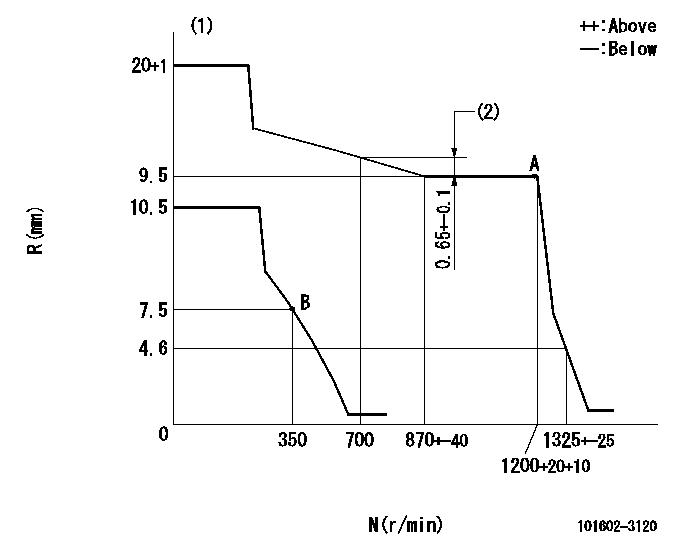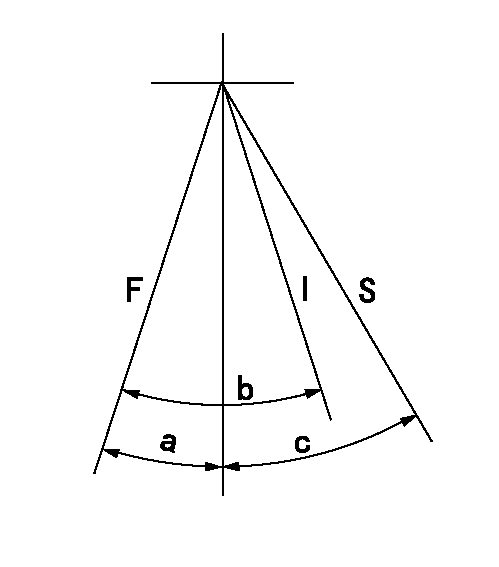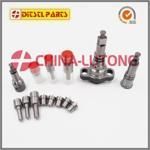Information injection-pump assembly
BOSCH
9 400 614 810
9400614810
ZEXEL
101602-3120
1016023120
KOMATSU
6137711401
6137711401

Rating:
Service parts 101602-3120 INJECTION-PUMP ASSEMBLY:
1.
_
5.
AUTOM. ADVANCE MECHANIS
7.
COUPLING PLATE
8.
_
9.
_
11.
Nozzle and Holder
6137-12-3100
12.
Open Pre:MPa(Kqf/cm2)
22.1{225}
15.
NOZZLE SET
Cross reference number
BOSCH
9 400 614 810
9400614810
ZEXEL
101602-3120
1016023120
KOMATSU
6137711401
6137711401
Zexel num
Bosch num
Firm num
Name
101602-3120
9 400 614 810
6137711401 KOMATSU
INJECTION-PUMP ASSEMBLY
S6D105 K 14BE INJECTION PUMP ASSY PE6A PE
S6D105 K 14BE INJECTION PUMP ASSY PE6A PE
Calibration Data:
Adjustment conditions
Test oil
1404 Test oil ISO4113 or {SAEJ967d}
1404 Test oil ISO4113 or {SAEJ967d}
Test oil temperature
degC
40
40
45
Nozzle and nozzle holder
105780-8140
Bosch type code
EF8511/9A
Nozzle
105780-0000
Bosch type code
DN12SD12T
Nozzle holder
105780-2080
Bosch type code
EF8511/9
Opening pressure
MPa
17.2
Opening pressure
kgf/cm2
175
Injection pipe
Outer diameter - inner diameter - length (mm) mm 6-2-600
Outer diameter - inner diameter - length (mm) mm 6-2-600
Tester oil delivery pressure
kPa
157
157
157
Tester oil delivery pressure
kgf/cm2
1.6
1.6
1.6
Direction of rotation (viewed from drive side)
Right R
Right R
Injection timing adjustment
Direction of rotation (viewed from drive side)
Right R
Right R
Injection order
1-5-3-6-
2-4
Pre-stroke
mm
3.3
3.25
3.35
Beginning of injection position
Drive side NO.1
Drive side NO.1
Difference between angles 1
Cal 1-5 deg. 60 59.5 60.5
Cal 1-5 deg. 60 59.5 60.5
Difference between angles 2
Cal 1-3 deg. 120 119.5 120.5
Cal 1-3 deg. 120 119.5 120.5
Difference between angles 3
Cal 1-6 deg. 180 179.5 180.5
Cal 1-6 deg. 180 179.5 180.5
Difference between angles 4
Cyl.1-2 deg. 240 239.5 240.5
Cyl.1-2 deg. 240 239.5 240.5
Difference between angles 5
Cal 1-4 deg. 300 299.5 300.5
Cal 1-4 deg. 300 299.5 300.5
Injection quantity adjustment
Adjusting point
A
Rack position
9.5
Pump speed
r/min
1200
1200
1200
Average injection quantity
mm3/st.
64
63
65
Max. variation between cylinders
%
0
-2
2
Basic
*
Fixing the lever
*
Injection quantity adjustment_02
Adjusting point
B
Rack position
7.5+-0.5
Pump speed
r/min
350
350
350
Average injection quantity
mm3/st.
9
7.2
10.8
Max. variation between cylinders
%
0
-10
10
Fixing the rack
*
Test data Ex:
Governor adjustment

N:Pump speed
R:Rack position (mm)
(1)Target notch: K
(2)Rack difference between N = N1 and N = N2
----------
K=10 N1=1200r/min N2=700r/min
----------
----------
K=10 N1=1200r/min N2=700r/min
----------
Speed control lever angle

F:Full speed
I:Idle
S:Stop
----------
----------
a=10deg+-5deg b=22deg+-5deg c=32deg+-3deg
----------
----------
a=10deg+-5deg b=22deg+-5deg c=32deg+-3deg
Information:
Caterpillar does not warrant the quality or performance of non-Cat fluids.
How Fuel and Oil Affects Cat DPF Performance
For the maximum performance in filtration and regeneration efficiency, operating the Cat DPF with ultra-low sulfur diesel fuel (ULSD-S15), of less than 15 ppm sulfur by weight is recommended. ULSD fuel must meet the S-15 fuels designation in the latest edition of ASTM D975 and/or conform to Cat Fuel Specification. Using ULSD, regeneration for engines certified to Tier II and lower regulations will occur when the duty cycle is above 300° C (572° F) for at least 30 percent of the operating time. For Tier III and greater engines, consult Cat for operating requirements.Operating the Cat DPF on diesel engines using fuel with sulfur content greater than 50 ppm will increase the regeneration temperature requirements significantly of approximately 50-90°C (90-135°F). If the exhaust temperature meets these requirements, continuous regeneration still can take place. If the normal operation of the Cat DPF is on ULSD but the engine is accidentally fueled with high sulfur fuel the regeneration temperature requirements will increase accordingly. With added sulfur, the normal duty cycle of the engine may cause the filter to plug with particulate matter PM. This condition will cause the backpressure to increase beyond the engine manufacturer limits. This condition could damage the filter and/or the engine.When the fuel sulfur level is once again below 50 ppm, ULSD operating conditions will return. High sulfur fuel will not damage the catalyst coating or the ceramic filter. High sulfur fuel will change the regeneration requirements as stated above.Biodiesel fuel may be used up to the B20 blend level (20 percent biodiesel and 80 percent appropriate ULSD fuel) IF the final B20 blend conforms to ASTM D7467 and API gravity 30-45. The neat biodiesel blend stock should conform to ASTM 6751. Cat diesel engine oils (CAT DEO) have been developed and tested in order to provide the full performance and service life that has been designed and built into Cat engines. Catt oils are currently used to fill Cat Diesel Engines at the factory. These oils are offered by Cat dealers for continued use when the engine oil is changed. Consult your Cat dealer for more information on these oils.Cat DEO-ULSTM(Ultra Low Sulfur) Oil exceeds the performance requirements of API category CJ-4 oil and is recommended due to a low ash specification. Engine oil that meets or exceeds the specifications in the Cat ECF-3 or API CJ4 categories may be used in these applications. Oil burned during the combustion process accounts for almost all of the DPF ash accumulation (because of oil additives). The use of recommended low ash oil results in lower ash accumulation in the filter. Failure to use the recommended grade of oil may results in more frequent ash removal service intervals.Note: Cat DEO and Cat DEO-ULS multigrade oils are the preferred oils for use in this Cat Diesel Engine.
Table 1
Commercial Lubricants Cat Lubricants Viscosity Grade
Diesel Engine Oil-Ultra Low Sulfur (API
Have questions with 101602-3120?
Group cross 101602-3120 ZEXEL
Komatsu
101602-3120
9 400 614 810
6137711401
INJECTION-PUMP ASSEMBLY
S6D105
S6D105
